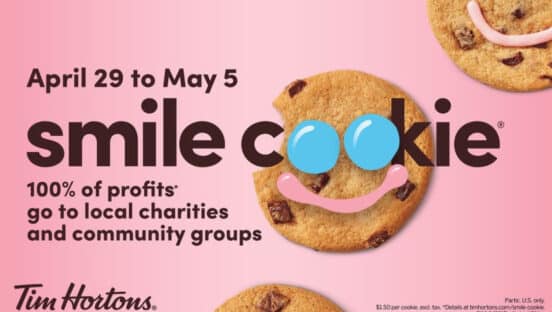Subway has made a commitment to make its restaurants and operations more
environmentally friendly.
In collaboration with the US Green Building Council, the first
Subway Eco-Store in Kissimmee, Florida, will open on November 5.
Elements of the Eco-Store include high-efficiency HVAC systems, remote
condensing units for refrigeration and ice making equipment, day lighting
and controls for high efficiency lighting, LED interior and exterior signs,
low flow water fixtures, and building and décor materials from sustainable
sources. There was also an extensive use of recycled products and
furnishings in the construction of the restaurant and an increased emphasis
on recycling in customer areas.
Another step the brand has taken is in a number of packaging
initiatives, including one that now sees the Subway brand using paper
napkins that are made from 100 percent recycled materials–of which 60
percent are post consumer recyclables.
“We have made a commitment as a brand to become even more
environmentally accountable,” says Bill Schettini, Chief Marketing Officer
for Subway. “With more locations in the United States than any
other restaurant chain, and more than 28,000 worldwide, we are in a
position to make a significant and positive global impact on the
environment and the world around us.”
The initiative is also realizing a cost savings for its thousands of
franchisees.
Working in partnership with the franchisee-controlled Independent
Purchasing Cooperative (IPC), which sources product and negotiates
contracts for Subway franchisees, brand representatives are reviewing
everything from materials used in disposable gloves to locations of product
distribution centers. There are many product packaging and distribution
initiatives in the works.
Other steps the Subway brand has taken include:
* Distribution: Efforts were made to strategically relocate several
redistribution centers next to vendor manufacturing facilities, eliminating
the need to transport product from long distances. In all, the move saves
an estimated 1,660,079 gallons of gas per year and eliminates 10,491 truck
loads annually. The brand has also undertaken an Operational Efficiency
program and has a Transportation Management Center plan in the works, which
ensures all routes are optimized and all trucks are full, which saves money
on freight costs and emits less green house gases.
“We have made a significant impact by just focusing on a few key areas
of the supply chain and we will continue to seek opportunities to make a
positive impact,” says Jan Risi, President and CEO of the brand’s
Independent Purchasing Cooperative (IPC). “What is most exciting is that we
have been able to remain true to our mission of saving franchisees money
without compromising quality. It feels good to be involved with a brand
that wants to do the right thing, not only for it’s customers but for the
environment.”
* Packaging: Along with making napkins with 100 percent recycled
materials–of which 60 percent is post consumer recyclable, saving an
estimated 147,000 trees annually–the brand has also: switched the
materials used for the manufacturing of its cutlery and 32 ounce plastic
drinking cups from polystyrene to polypropylene. The change resulted in an
annual resin savings of more than 610,000 pounds and saves an equivalent of
13,000 barrels of oil.
Other areas of packaging improvements have been made in deli paper
cartons, salad packaging and catering trays, specialty sandwich bags, 4-cup
carriers and lunch box, and the reduction of sandwich wrap wax.
* Corporate Social Responsibility: The brand enhanced the Code of
Conduct it requires its vendors to follow to ensure they are in compliance
with fair labor and other practices. Vendors must conduct Social
Accountability self audits; uniform vendors must be WRAP (Worldwide
Responsible Apparel Producers) Certified; and enhanced our Good
Agricultural Practices (GAP) audits for produce food safety.
For the last 10 years, the brand has been proud to be the
leader in providing healthier alternatives to traditionally fatty fast
foods and in 2007 removed what little trans fats it had from its core menu.
The chain is a proud sponsor of the American Heart Association
American Heart Walks, Jump Rope for Heart and START! Walking at Work
programs. In March 2007, the brand launched its FRESH Fit meal, which
includes a six-inch submarine sandwich with 6 grams of fat or less and
“better for you sides,” such as sliced apples, raisins, yogurt, baked
chips, bottled water, low-fat milk and diet soda. FRESH Fit are on-the-go
meals that compliment living a busy and active lifestyle, they were
developed to fit into the American Heart Association’s approach to a
healthy lifestyle. The brand is also at the forefront of providing
nutritional information to consumers to help them make better choices.
* Eco-Store: along with the restaurant that opened in Kissimmee there are many more in various stages of planning. The brand is working
with the U.S. Green Building Council to earn Leadership in Energy and
Environmental Design (LEED) certification for the Eco-Stores. The opening
of the Eco-Store in Kissimmee also provides an opportunity to measure
energy and water saving concepts against a standard Subway restaurant
opening nearby.




